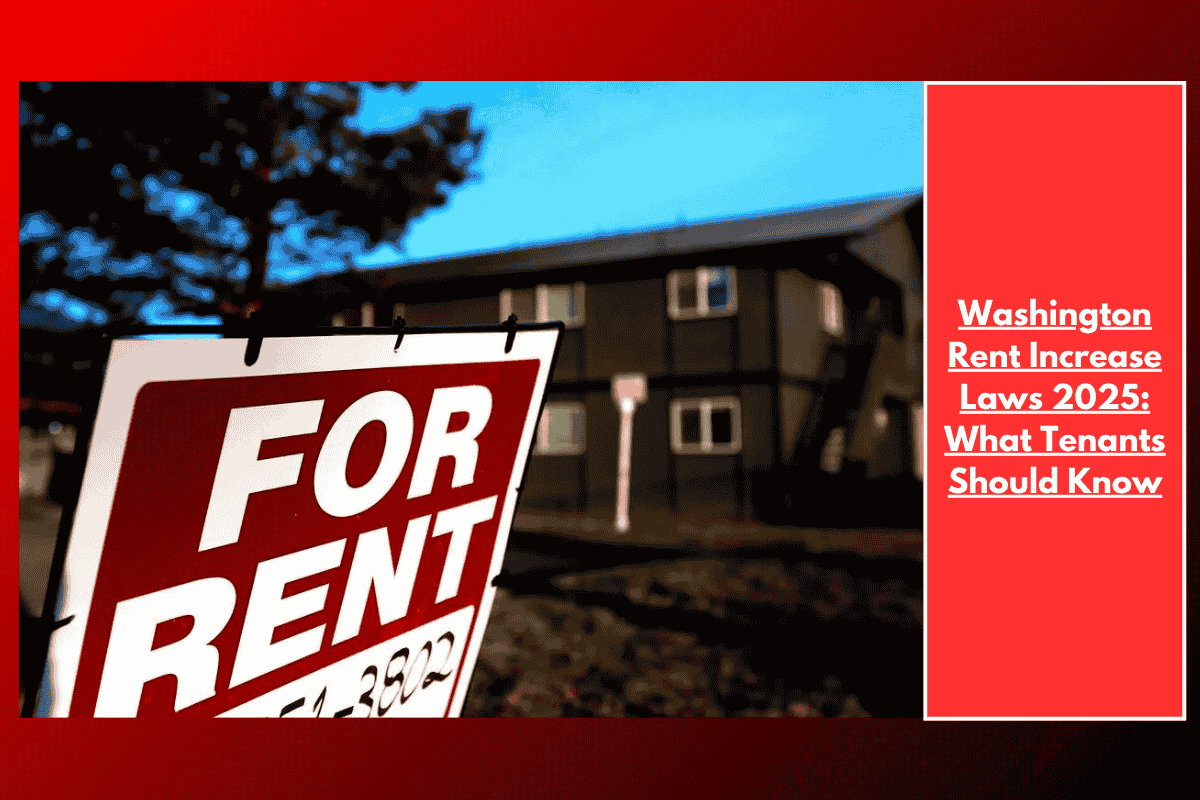Rent increases are a common concern for tenants, and understanding the laws that govern them can help protect your rights as a renter. In Washington state, rent increase laws are designed to balance the interests of both landlords and tenants. As of 2025, there are specific regulations that dictate how much rent can be raised, how frequently it can happen, and what notice must be given. If you’re a tenant in Washington, it’s essential to be aware of these rules to ensure you’re not caught off guard by unexpected hikes. Here’s what you need to know about rent increases in Washington as of 2025.
1. Limits on Rent Increases in Washington (2025)
Washington state has enacted rent control laws, but they are limited in scope. Unlike some states, Washington does not impose statewide rent caps that limit how much a landlord can increase rent each year. However, there are rules on how and when rent increases can occur, especially in cities with rent control or tenant protections, like Seattle.
Statewide Rent Increase Guidelines
Notice Period: In Washington, a landlord must provide at least 60 days’ notice before increasing the rent for a month-to-month lease. This means that if your landlord plans to raise your rent, they must give you a written notice that you will receive at least two months’ notice before the increase takes effect.
Limitations on Frequency: For tenants with month-to-month leases, rent can be increased once every 12 months. Landlords cannot increase rent more than once a year. However, tenants with fixed-term leases (such as a one-year lease) are generally protected from rent increases during the lease term unless specified in the agreement.
Cities with Rent Control or Additional Protections (e.g., Seattle)
Seattle and some other cities in Washington have additional rent control measures and tenant protections that limit how much landlords can increase rent in certain circumstances.
Seattle Rent Increase Rules: In Seattle, rent increases for tenants in multi-family housing are limited to once per 12-month period. Additionally, Seattle has a rule that limits how much rent can increase at one time. For example, rent increases in Seattle cannot exceed 10% of the rent during any 12-month period for tenants who have been in the unit for more than a year.
2. Types of Leases and How They Affect Rent Increases
The type of lease you have can influence the rules surrounding rent increases.
Month-to-Month Leases: Rent increases for month-to-month leases are subject to the 60-day notice rule. After the notice period, the landlord can raise the rent, but only once in a 12-month period.
Fixed-Term Leases: Fixed-term leases generally lock in rent for the duration of the lease (e.g., 12 months). If you’re on a fixed-term lease, your rent cannot be raised during the term unless the lease specifically allows for rent adjustments.
Once your lease ends, if you decide to sign a new lease or continue as a month-to-month tenant, rent increases can occur under the guidelines mentioned above.
3. Rent Increases in Response to Market Conditions
In Washington, landlords are allowed to raise rent to meet market conditions, but they must comply with the notice requirements outlined above. While rent can go up in response to the local rental market, landlords cannot arbitrarily raise rent without proper notice.
Inflation and Market Rate Adjustments: If rents in your area are rising due to inflation or increased demand, your landlord may adjust the rent to remain competitive with other similar properties. However, they must still follow the 60-day notice rule and the once-a-year rent increase limitation.
4. How Can Rent Increases Be Challenged?
Tenants in Washington have certain rights when it comes to challenging rent increases, particularly in places like Seattle, where there are stricter protections in place.
Reason for Rent Increase: In some cases, tenants can ask the landlord for the reason behind a rent increase, especially if it appears excessive. If the increase violates the city’s rent control or tenant protection laws, it may be challenged.
Dispute Resolution: If you feel the rent increase is unjustified or violates the law, you can dispute it through the Washington State Department of Commerce or seek mediation through a local housing authority or tenant’s union. In some cities like Seattle, tenants may also seek assistance from the Seattle Office of Housing.
5. Special Considerations for Older Tenants and Low-Income Renters
Some tenant groups, including elderly tenants or those with lower incomes, may have additional protections or assistance available to help manage rent increases.
Income-Based Rent Adjustments: Low-income tenants may be eligible for rental assistance programs that help offset increases. Programs like Section 8 housing vouchers and Washington State’s Housing Trust Fund provide financial support for renters facing rising housing costs.
Senior Housing Assistance: Seniors who are facing an unaffordable rent increase can reach out to local advocacy groups or senior housing programs that offer rental assistance or help negotiating with landlords.
6. What to Do If You Receive a Rent Increase Notice
If you receive a rent increase notice from your landlord, there are several steps you can take:
Review the Notice: Check that the notice is in compliance with Washington state laws (60 days’ notice and once-a-year increase). Ensure the increase is within the legal limits.
Communicate with Your Landlord: If the increase seems too high or unreasonable, consider discussing it with your landlord. In some cases, landlords may be open to negotiating a smaller increase or offering incentives like a longer lease term to lock in your current rate.
Explore Rent Assistance: If the increase is beyond your budget, look into local rent assistance programs or legal aid that may help you with your rental payments.
Understanding Washington’s rent increase laws in 2025 is essential for both tenants and landlords. While rent increases are generally allowed, there are clear regulations in place to ensure that they are done fairly and within reasonable limits. Tenants should be aware of their rights, including the 60-day notice period and the one-per-year limit on increases. Additionally, cities like Seattle have stronger tenant protections that may provide further security. If you ever feel that a rent increase is unlawful or unjust, you have the option to dispute it through various channels. By staying informed and proactive, you can better navigate any potential changes to your rent.
SOURCES
[1] https://www.multifamilynw.org/news/wa-state-house-bill-1217—limits-to-rent-increases-changes-to-notice-requirements-and-tenancy-rules
[2] https://www.opb.org/article/2025/05/07/washington-rent-cap-signed-into-law/
[3] https://www.commerce.wa.gov/commerce-announces-10-rent-cap-for-the-rest-of-2025/
[4] https://app.leg.wa.gov/billsummary?billnumber=1217&year=2025
[5] https://www.stoel.com/insights/publications/washington-enacts-statewide-rent-control-key-rules-now-in-effect














